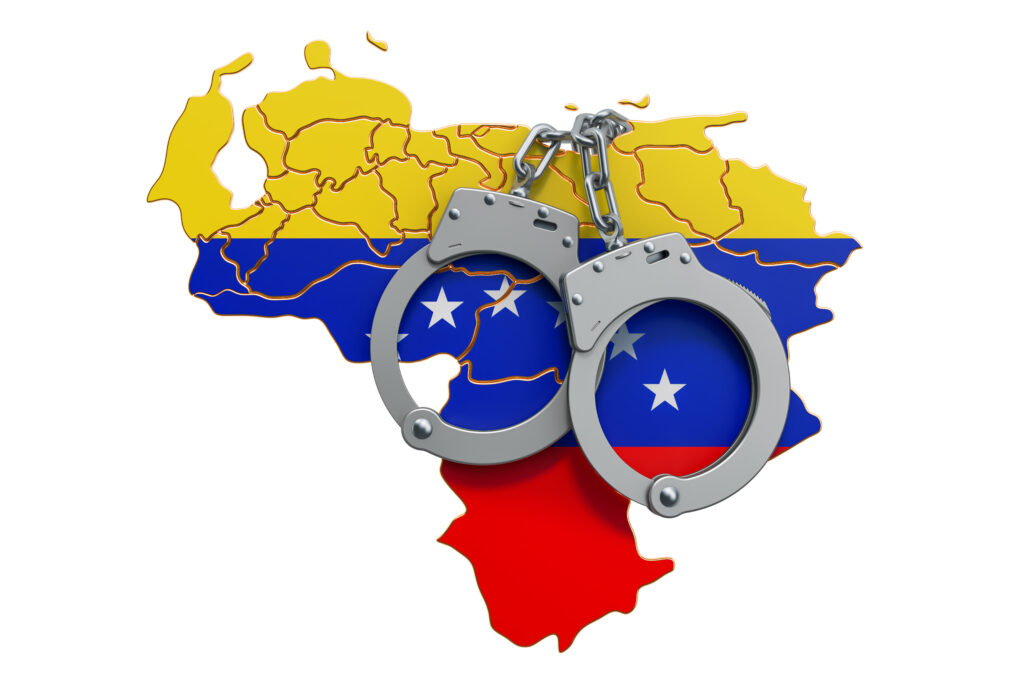24 Apr Attempted Abduction of Lieutenant José Ángel Rodríguez Araña? A Critical Assessment of the Incident in the U.S.
By,
William Acosta, SME, MSI² & Jesús Daniel Romero, Co-Founder and Senior Fellow, MSI²
The recent incident reported by Venezuelan Lieutenant José Ángel Rodríguez Araña in the United States has triggered considerable alarm within the Venezuelan diaspora and among observers of political exile.
According to the account provided by Araña himself, unidentified individuals arrived at his residence late at night, posing as U.S. officials. They did not force entry but merely knocked on the door—only to be caught on a surveillance camera.
Araña is a well-known figure within the Venezuelan military dissident community. He rose to prominence through his participation in Operation Aurora, a civil-military action carried out in December 2019 by a group of officers who openly rebelled against the Maduro regime. The operation aimed to reject Maduro’s presidential mandate, expose government corruption, and denounce the regime’s tolerance of ELN presence on Venezuelan soil. After being captured for his role in the operation, Araña escaped from detention and eventually went into exile in the United States, where he has resided for the past three years.
This type of allegation takes on added weight amid growing concerns about the Maduro regime’s expanding extraterritorial operations, particularly after the assassination of dissident and Venezuelan army lieutenant Ronald Ojeda in Chile in February 2024. In that case, the Chilean prosecutor’s office pursued a line of investigation that directly implicated the Venezuelan state as the intellectual author behind the abduction and murder (El País, 2024). The similarities between Ojeda and Araña—both lieutenants, both in exile, and both outspoken critics of the regime—have led sectors of the Venezuelan exile community to interpret Araña’s case as part of a possible pattern of transnational persecution.
However, in Araña’s case, there is no conclusive evidence that the individuals who approached his residence were connected to Venezuelan intelligence or security services. In fact, based on our experience investigating the Maduro regime’s intelligence operations abroad, the elements observed here do not align with the usual patterns employed by the regime’s repressive apparatus. It is also noteworthy that U.S. authorities have not launched an official investigation into the incident, despite the seriousness of the allegation. This may suggest that there was insufficient evidence to indicate a real threat or international connections.
This assessment has been enriched by direct conversations with Lieutenant Rodríguez Araña and Lieutenant Luis Hernando Lugo Calderón, both of whom shared key details about their personal contexts and recent threats. These insights help us better understand the risk perceptions within Venezuelan exile circles. Additionally, we had the opportunity to discuss these topics in depth on the YouTube program “Marcano en Vivo”, hosted by Alejandro Marcano Santelli and titled “What Happened to Araña?”, aired on April 17, 2025. Other participants included William Acosta, retired NYPD investigator; Lieutenant José Ángel Rodríguez Araña; Lieutenant Luis Hernando Lugo Calderón; and myself, Jesús Romero, a former U.S. intelligence officer. The discussion allowed for a deep exploration of recent patterns of transnational harassment and the potential implications of the Araña case.

While it is plausible that the Maduro regime possesses the capability to monitor, harass, or even neutralize opposition figures abroad, carrying out such a bold and potentially destabilizing operation on U.S. soil does not appear to align with its strategic interests—especially in a context where former President Donald Trump and key sectors of the Republican Party have labeled the Maduro regime a direct threat to hemispheric security (Salazar, 2024). If confirmed, such an operation on U.S. territory would carry severe diplomatic consequences.
In conclusion, while Lieutenant Araña’s report has understandably sparked legitimate concern, there is no conclusive evidence indicating that the incident was orchestrated by agents of the Maduro regime. The motivations behind the event—and its potential political use—must be examined carefully and without premature conclusions. Vigilance should continue, but with a critical evaluation of the available facts.
References
El País. (2024, February 23). Prosecutor Héctor Barros and the murder of dissident Ronald Ojeda in Chile: “We believe the Venezuelan government is behind this act.” https://elpais.com/chile/2025-01-20/el-fiscal-hector-barros-y-el-homicidio-en-chile-del-disidente-ronald-ojeda-estimamos-que-detras-de-este-hecho-esta-el-gobierno-venezolano.html
Salazar, M. E. (2024, April 9). Congresswoman Salazar welcomes Venezuela’s President-Elect Edmundo González. U.S. House of Representatives. https://salazar.house.gov/media/press-releases/congresista-salazar-recibe-al-presidente-electo-de-venezuela-edmundo-gonzalez
Contrapoder News. (2025, April 16). Lieutenant Rodríguez Araña reports abduction attempt by fake officials in the U.S. https://contrapodernews.com/teniente-rodriguez-arana-denuncio-intento-de-secuestro-por-falsos-funcionarios-en-ee-uu/?utm_source=chatgpt.com
